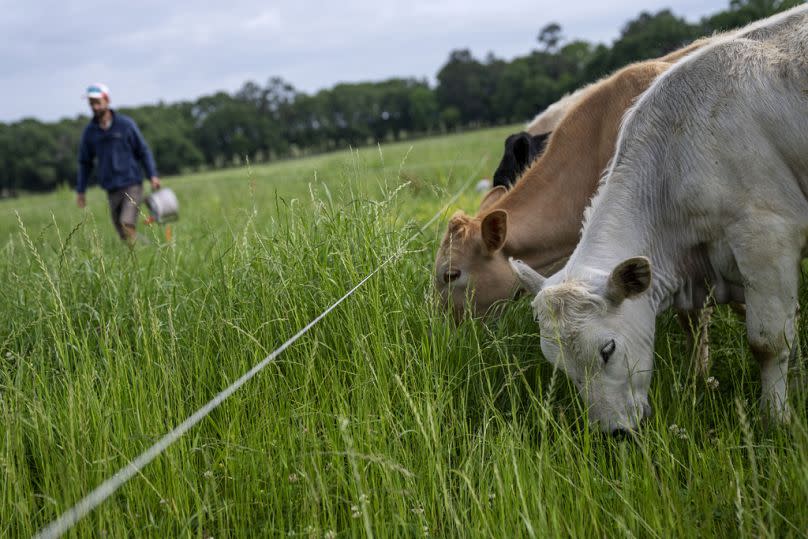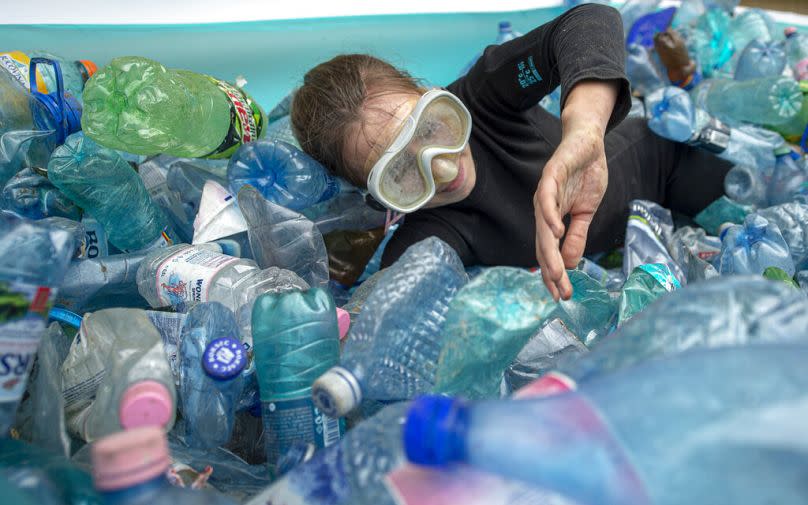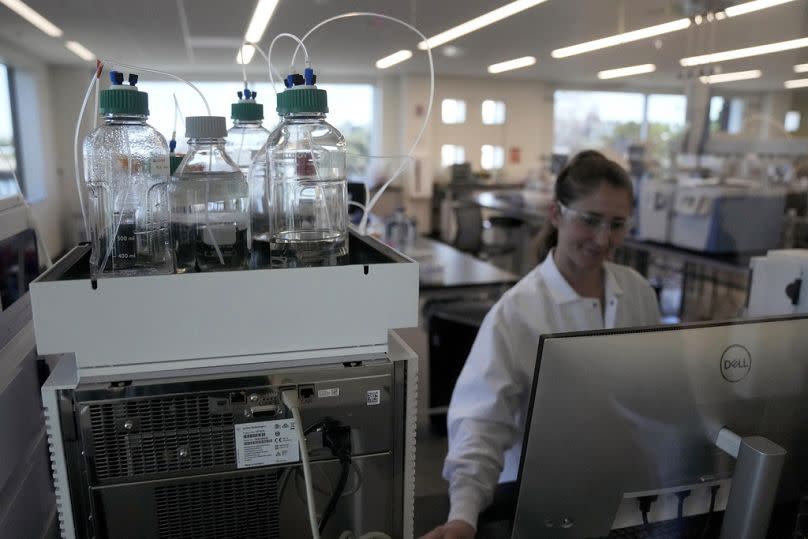Generative AI is being used to improve processes across many industries – from automating office work to creating better marketing materials – but science and engineering is where it could have a bigger impact.
When used in combination with biology, generative AI can also be applied to reduce, even cut out, industrial processes of material production, and greatly reduce the environmental cost of human consumption.
Synthetic biology, a market worth €10.4 billion in 2022, has the potential to create products beyond our imagination – in fact, the McKinsey Global Institute has predicted that 60% of everything people eat could be produced using from biology.
Already, several companies are producing a range of products in critical industries — materials, chemicals, food, agriculture and pharmaceuticals — using synthetic biology.
Food solutions and chemicals
For those not quite sold on plant-based food alternatives, lab-grown food products may look like the future.
Take a company like Perfect Day, which produces bio-based milk using precision fermentation – which involves producing molecularly identical dairy proteins like casein or whey by encoding milk protein DNA sequences in microorganisms like yeast or fungi, which are then fermented with nutrients and sugar i. tanks (similar to how beer is produced), producing proteins that are equivalent to traditional ones that come from dairy.
Perfect Days milk protein produces up to 97% less carbon emissions and 99% less blue water than conventional milk production.
According to the company, if just 5% of the milk consumed in Europe was animal-free, it would save the equivalent of 660,000 journeys worldwide from petrol — governments should be making more significant strides to invest in bio-based production. milk, and encourage consumers to make the switch.

One example is bio-based chemicals that have recently hit the headlines, with the US government planning to produce at least 30% of its chemicals through biomanufacturing processes over the next 20 years.
With global emissions from the chemical industry accounting for around 2% of total CO2 emissions in 2021, bio-based chemicals have the potential to significantly reduce our reliance on fossil fuels.
One company that has had significant traction in the space is Solugen, which mixes corn syrup with genetically engineered enzymes to create ingredients for common chemicals normally made using phosphates and oil.
However, many companies in the field are struggling to gain commercial traction.
We need to see significant investment, both in the public and private space, to accelerate the production of bio-based chemicals.
Material solutions
Synthetic biology is also used for the production and recycling of materials. Build concrete — building our homes and offices is essential, but it has a huge carbon footprint, with cement manufacturing accounting for 8% of the world’s total CO2 emissions.
Biologists have now developed new forms of low-carbon concrete, including one that absorbs CO2 using an enzyme found in blood – when small cracks form in the concrete, the enzyme interacts with CO2, mimicking the concrete’s characteristics and filling the crack.
Similarly, synthetic biology has the potential to change the life cycle of materials such as plastics and polymers commonly used in water bottles and clothing.


Firstly, scientists have developed enzymes that can break down PET plastics commonly found in drink bottles, helping to reduce the impact of our waste on the environment.
Similarly, we can produce new types of plastic using enzymes which means we can rely less on petrochemicals.
However, many of the existing low-carbon concrete solutions are either expensive technologies that are far from commercialization, or lower-cost alternatives that deliver limited emissions reductions.
Much of the innovative technology currently in the space is little beyond proof of concept. It will require significant investment to develop and scale the technology for widespread implementation.
Accelerating R&D
At its heart, synthetic biology tries to change the DNA-encoded sequence of a protein to make something else.
The traditional nature of research is based on trial and error, meaning that creating effective products has historically been extremely expensive and time-consuming. It is not uncommon for 95% of designed proteins tested in the laboratory to fail to meet their design specifications.
This is where generative AI comes in: large language models can be trained on DNA sequences and experimental results on known proteins, which means we can predict the most suitable DNA sequences for a protein that exhibits the desired characteristics.
This allows scientists to significantly increase the likelihood of achieving design objectives when engineering a protein.


By using the latest biological research and analysis of protein sequences, generational AI can give scientists the ability to “reverse engineer” a protein to achieve the desired output with fewer experiments and more successfully than previous methods.
Synthetic biology companies working in the space are already experimenting with AI generation models to improve their platforms. For example, LanzaTech is experimenting with generative AI to design DNA sequences for enzymes that produce microbes for clothing, plastics, jet fuel and even perfume; and, Zero Coffee is using an AI-powered flavor optimization platform to develop “beanless coffee”.
There is also the potential for the software to provide AI generation models to synthetic biology companies to implement in their own processes.
The Cradle platform, trained on data generated in a wet lab, as well as publicly available and customer data, enables users to engineer the desired protein function and properties, enabling protein-based products to create and scale much faster and more cost. -effectively.
The future is biology
So while the use of generative AI in biotechnology is already a huge market — worth nearly €50 million in 2022 — it’s still nothing compared to the synthetic biology market as a whole. We need to close the divide between AI engineers and biologists and have the same goal of having a positive impact on society.
While generative AI in biology holds great promise for producing sustainable solutions, addressing the climate crisis requires a multifaceted approach including policy changes, technological innovations and investment.
There needs to be cross-collaboration between different governments, investors, Big Tech, and emerging startups, for generational AI to have a meaningful impact on the climate crisis.
Stef van Grieken is the co-founder and CEO of Cradle.
At Euronews, we believe that every opinion matters. Contact us at view@euronews.com to send pitches or submissions and be part of the conversation.